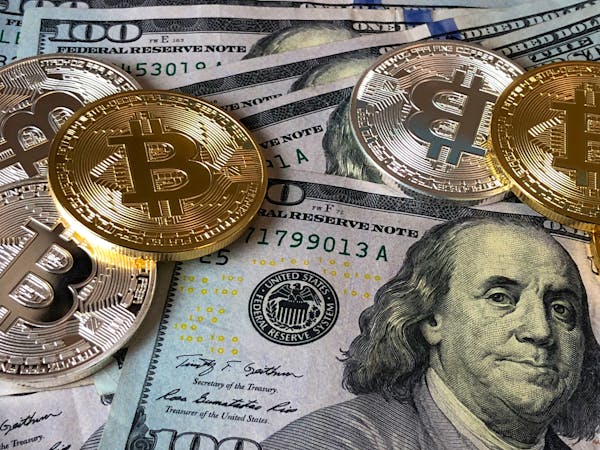Bitcoin is a digital currency that has many uses. People use it to buy things online and in person. Its value fluctuates and traders aim to realise gains or losses depending on the price at which they sell their Bitcoin.
It is a decentralized cryptocurrency with no central authority. Transactions are recorded on a public ledger called the blockchain, which is not linked to real-world identities. However, it has several problems including volatility and slow transaction times. For more information, check out https://cryptsy.com/.
It’s a form of digital currency
Bitcoin is a form of digital currency that operates independently from banks. Users can trade it for goods and services without a middleman, and transactions are transparent. Each transaction is broadcast to the network and recorded in a public ledger called the blockchain. The blockchain is maintained by a community of miners who verify and collect these transactions into groups, called blocks.

Its value depends on supply and demand, which can fluctuate greatly. For example, the price of Bitcoin has spiked and plummeted on the whim of buyers and sellers. It is also not insured by any bank, so it’s important to store it safely.
Some companies are starting to accept Bitcoin as payment, including the electric car company Tesla and online retailer eBay. It is also used as an investment by individuals who see it as a safe haven from global economic instability. The cryptocurrency’s popularity has also made it a target for hackers and the subject of ransomware attacks.
It’s a store of value
Bitcoin has gained popularity as a store of value and a means of payment. Many retailers and businesses accept it, allowing customers to make purchases with digital currency. However, it is not a replacement for cash. Unlike cash, bitcoin has no intrinsic value, and its price is volatile and reactive to investor fear and greed. Bitcoin’s price reflects the fact that it is a new, experimental asset.
Despite these flaws, some investors believe in the cryptocurrency’s potential to become a global alternative currency. The decentralized nature of the Bitcoin network allows people to make transactions without a bank or other trusted third party. It also has the added benefit of being able to be transferred across borders. It is divisible up to eight decimal points, and the smallest unit is called a “satoshi.” Bitcoin is held in digital wallets that are encrypted. It has a reputation for being a safe and secure method of exchange, although thefts have occurred in the past.
It’s a medium of exchange
Bitcoin is a digital medium of exchange that can be traded for goods and services. It has become an accepted payment method at some brick-and-mortar stores and online merchants. The popularity of bitcoin has led to an increase in volatility in its prices.
Bitcoin solves a problem that has long plagued the Internet: how to transfer value between two parties without the intervention of gatekeepers like banks, credit-card companies and lenders. Its invention marks a significant advance in computer science, but its broader implications are even more profound.
The cryptocurrency’s security comes from its blockchain, a decentralized system that records transactions on a public ledger. The blockchain’s users collectively help to run the network, guided by strict rules that control how new bitcoin is created and traded. This decentralization gives individuals maximum control over their money and opens the door to a more open financial system that could benefit everyone. This includes people in third world countries who would otherwise be locked out of traditional banking systems.
It’s a store of power
Unlike traditional currencies such as the dollar or the euro, Bitcoin is decentralized. This feature makes it popular among those who believe that it can reduce the power of centralized financial institutions and give people more control over their own money. But it also makes the cryptocurrency extremely volatile – its value can spike and drop quickly.

Despite its volatility, Bitcoin is still an attractive investment for investors who want to take advantage of opportunities for profit. But if you’re considering buying Bitcoin, beware of scams and other risks.
Another risk of investing in Bitcoin is the environmental impact of its mining process. Bitcoin mining uses large amounts of electricity, which contributes to climate change. This is because mining relies on a technology called blockchain, which uses energy to record transactions. When a transaction is verified, it’s added to the blockchain, which functions like a long running receipt. As more transactions are verified, the blockchain becomes longer, which increases the amount of electricity used by miners.